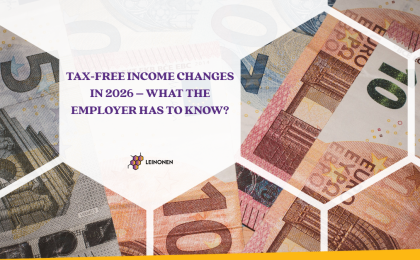Pursuant to the legislation in force before the amendment, the supply of services was considered to have occurred or the services were considered to have been received on 31 December of the subsequent calendar year as of the commencement of the provision of the services upon the provision of long-term cross-border services if no payments were made for the respective services.
Such situations probably occur most often in the case of loans granted. Parties often agree to the loan interest not being paid until the repayment of the principal sum, and to it being paid in a lump sum after a few years or over a longer period. Loan interest generates supply exempt from tax, but it is also important to declare supply exempt from tax, as the latter generally leads to the obligation of calculating the proportion upon the deduction of input value added tax for the taxpayer unless the transaction is an occasional financial transaction. Therefore, regardless of the fact that no actual tax liability is created upon the receipt of interest, it is still important to declare supply exempt from tax at the right time.
Pursuant to the new wording of subsection 11 (4) of the VATA, the supply of the service is deemed to have been created or the service is deemed to have been received at the end of every calendar year, i.e. on 31 December of every calendar year. Thus, if the provision of a service commences in the middle of a calendar year, the first period in which the supply of the service is deemed to have been created or the service is deemed to have been received is 31 December of the same calendar year.
Pursuant to the amendment, taxpayers are obliged to declare long-term cross-border services at least once a year. This is perfectly logical, as input value added tax proportion recalculations are also made once a year. The aforesaid will be done with respect to a calendar year in the last value added tax return, which is to be submitted by 20 January of the subsequent year.
The amendment should render impossible the situation where taxpayers postpone the recalculation of potential input value added tax as far as the subsequent calendar year by means of mutual agreement. If the amounts are large enough, this could lead to significant changes in calculating the proportion upon the deduction of input value added tax and to the obligation to repay part of the input value added tax deducted over the year for taxpayers.




